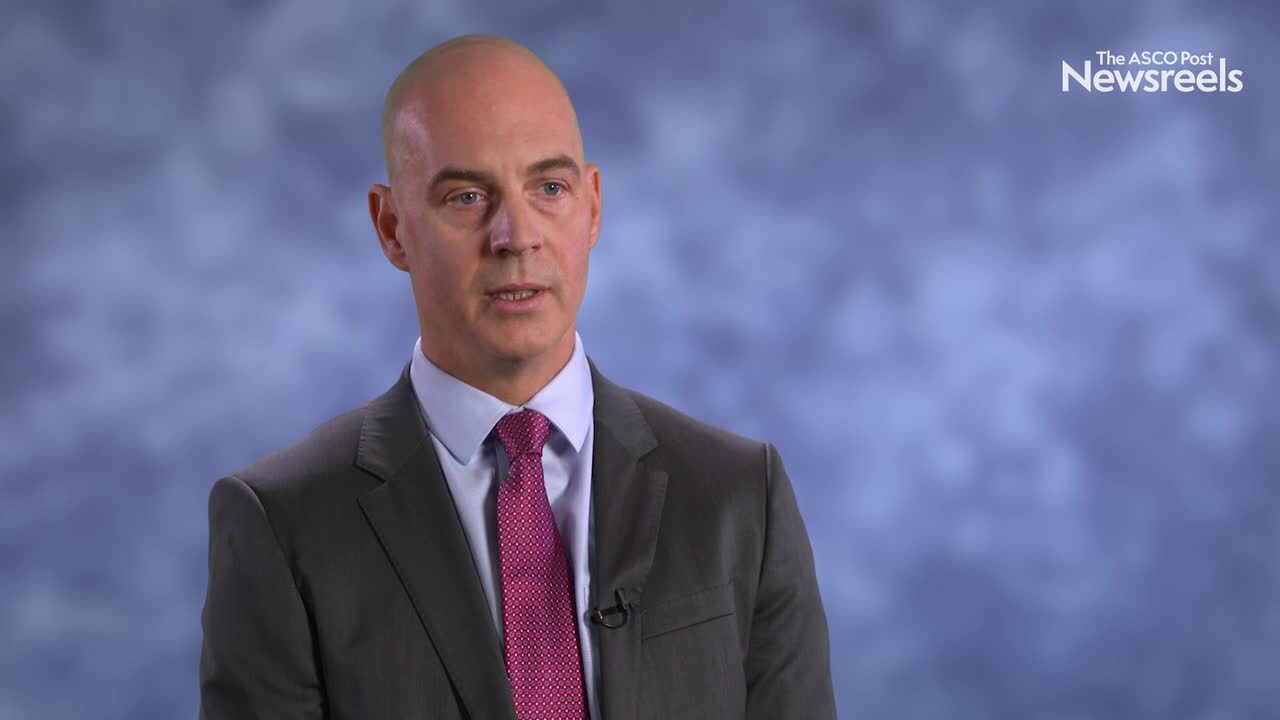Yongbae Kim, MD, on Elective Internal Mammary Node Irradiation in Women With Node-Positive Breast Cancer: Results of a Randomized Phase III Trial
2021 ASTRO Annual Meeting
Yongbae Kim, MD, of the Yonsei Cancer Center and Yonsei University College of Medicine, discusses findings that showed the use of internal mammary area irradiation (IMNI) in regional nodal irradiation did not significantly improve disease-free survival for women with node-positive breast cancer. However, patients with medially or centrally located tumors may be considered for treatment with IMNI (Abstract 2).
The ASCO Post Staff
Howard M. Sandler, MD, of Cedars-Sinai Medical Center, discusses whether hypofractionation can be safely employed in the post-prostatectomy setting and the role of short-term hormone therapy in the management of intermediate-risk prostate cancer with radiotherapy.
The ASCO Post Staff
Daniel F. Hayes, MD, of the University of Michigan Rogel Cancer Center, discusses whether liquid biopsies can provide insight into the challenge of curing metastatic breast and possibly other cancers, how oligometastases are similar to a primary cancer, and why some kinds of local therapy for widespread disease might improve survival and lead to a cure.
The ASCO Post Staff
Aadel A. Chaudhuri, MD, PhD, of Washington University School of Medicine in St. Louis, discusses circulating tumor DNA, which has the potential to better personalize treatment for patients with oligometastatic cancer and help clinicians determine whether to offer systemic therapy alone or curative-intent local consolidative therapy.
The ASCO Post Staff
Amar U. Kishan, MD, of the University of California, Los Angeles, discusses findings from a meta-analysis of clinical trials in patients with localized prostate cancer. The phase III results suggest that the use of androgen-deprivation therapy (ADT) or prolonged adjuvant ADT with radiotherapy may benefit patients with localized prostate cancer. Further biomarkers are needed to better personalize treatment intensification (Abstract 8).
The ASCO Post Staff
Mark K. Buyyounouski, MD, MS, of Stanford University, discusses phase III results from the NRG Oncology GU003 trial, which showed that, post-prostatectomy, using fewer—but higher—doses of radiation does not appear to increase long-term side effects or reduce quality of life when compared with conventional radiation treatment (Abstract 3).





